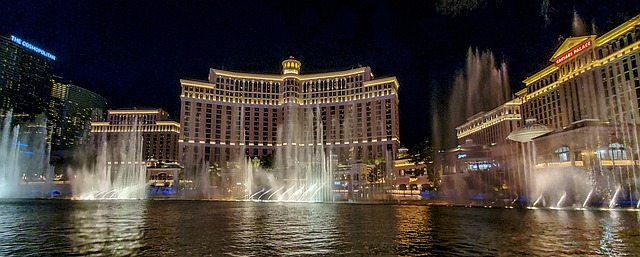
10, Mar 2024
Environmental Impact of Casinos
Casinos are more than just amusement facilities. Big complexes consume water and energy resources. They produce a lot of garbage as well. Environmental issues are becoming more widely known. There is increasing pressure on the gambling sector to reduce its environmental impact. This article examines how big casino resorts affect the environment and the tactics used to make them more sustainable.
High Energy Consumption
The energy usage of gambling resorts is one of their biggest environmental effects. Since these facilities are always open, a steady source of electricity is required. They require electricity to run game machines, heat, cool, and light up. These complexes use a lot of energy. This is due to their large HVAC systems and fancy lighting. They play a significant role in their high energy requirements. Huge casinos consume a lot of energy. This is particularly valid in places like Las Vegas. They are some of the industry’s most prolific users.
Water Usage and Waste Production

Water is also essential for casinos. It is essential to their day-to-day activities. This applies to their dining establishments, golf courses, and lodgings. Handling this water is difficult. Drought-prone locations are particularly difficult. Casinos also produce garbage. Food waste from their numerous dining establishments is included in this. Disposable items used for lodging and entertainment are also included. These increase the load on the ecosystem.
Strategies for Sustainability
Many casino resorts are implementing greener methods in response to these issues in order to lessen their impact on the environment. Focusing on energy efficiency is essential. To save energy, casinos now use solar electricity, LED lighting, and improved heating and cooling systems. Large solar panels are now used by top casinos in Las Vegas. As a result, they utilize far less fossil fuels.
Additionally, water-saving techniques are being used. Casinos are spending money on water recycling systems. They do this so they can use their waste for non-drinking purposes like irrigation. In an effort to use less water, many people have also begun to use automated faucets and drought-resistant landscaping.
Strategies for reducing waste are also becoming more widespread. Thorough recycling initiatives assist in keeping garbage out of landfills, and food waste is increasingly being composted or given to food banks. Additionally, several casinos are aiming for zero waste. To achieve this, they reduce the amount of single-use plastic and opt for reusable or biodegradable alternatives.
The Role of Technology and Innovation

Technology is essential to improving the sustainability of casino operations. Advanced building management systems can minimize overall consumption by optimizing the usage of water and electricity. Furthermore, technological advancements like the Aviator game are altering the whole definition of gambling. These games don’t require as much physical setup. They lessen the environmental effect of traditional casino gaming because they may be enjoyed from a distance.
To sum up, casinos have a significant effect on the ecosystem. However, the sector is making efforts to be sustainable. Casinos are implementing energy-saving technology. They are also employing techniques for waste reduction and water saving. They are able to reduce their ecological footprint thanks to this. The public’s desire for environmentally responsible actions is rising. They’ll expand farther and wider. This will assist the gaming sector in taking the lead in hospitality sustainability.
- 0
- By Michael Davenport
